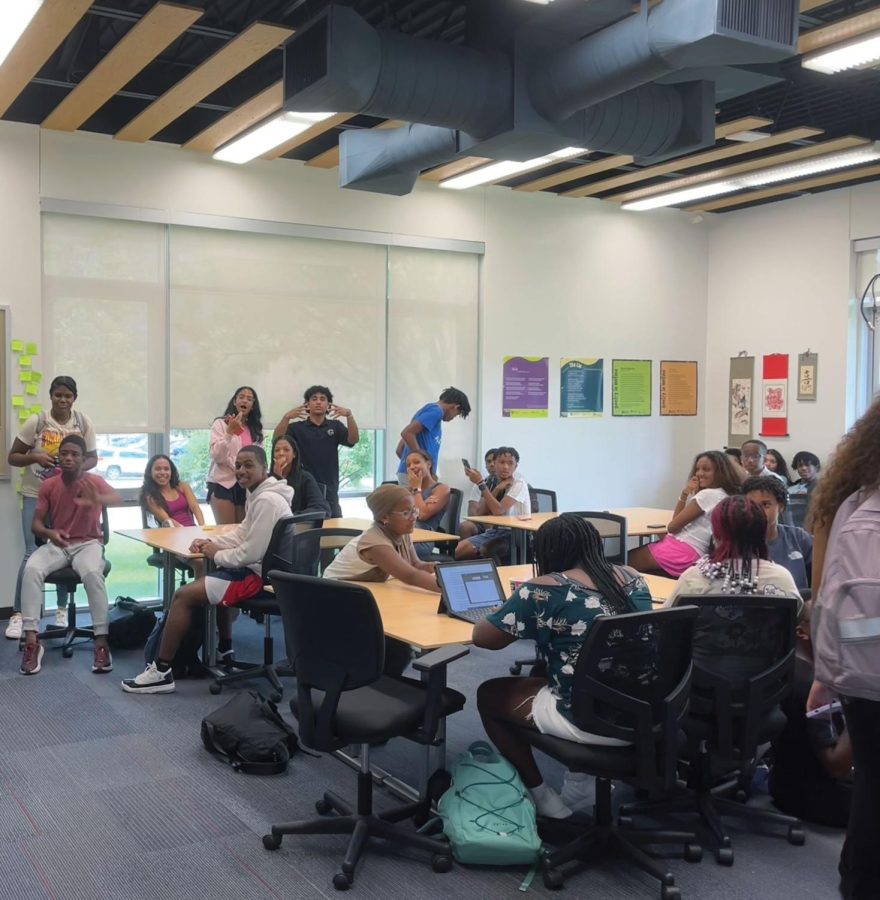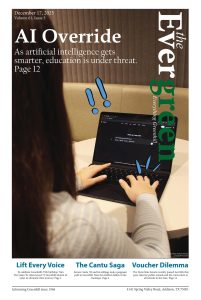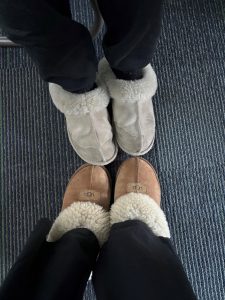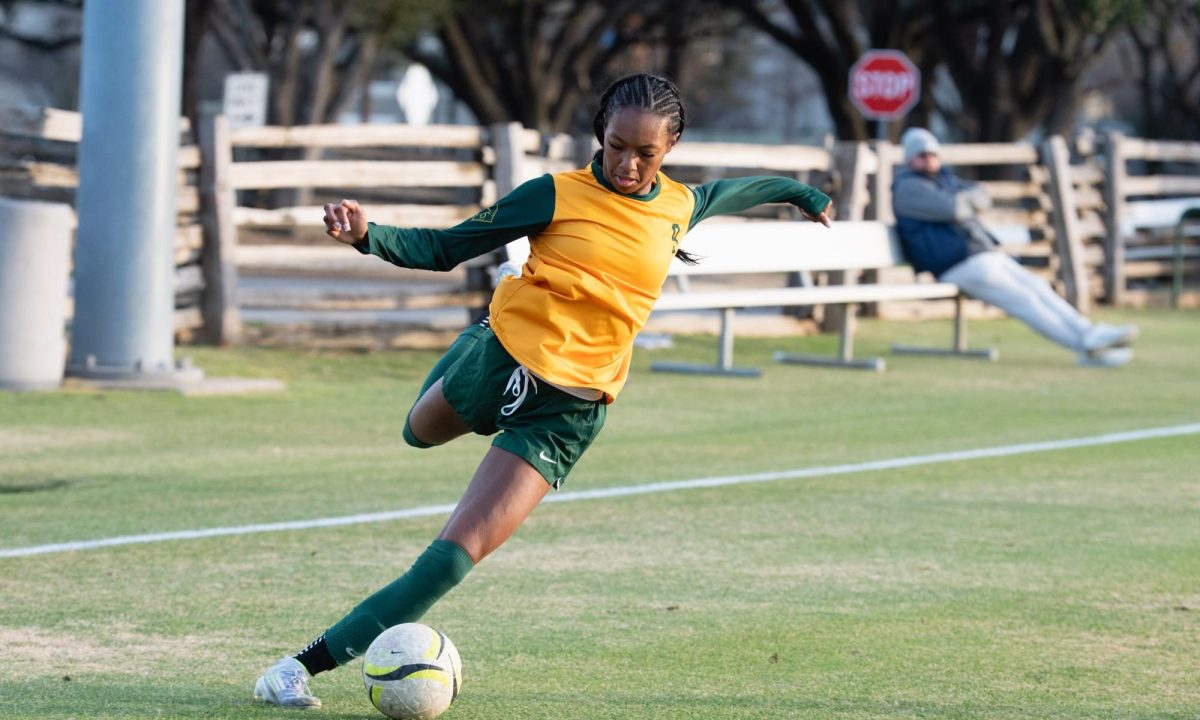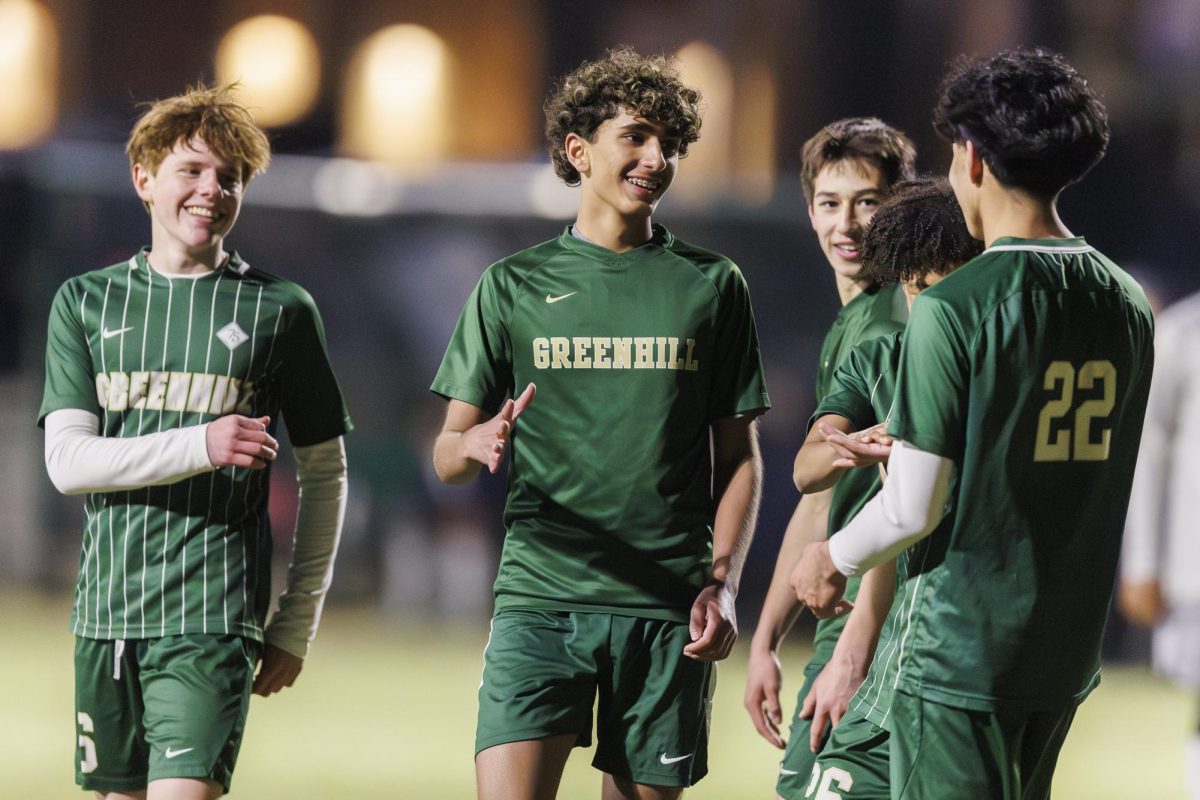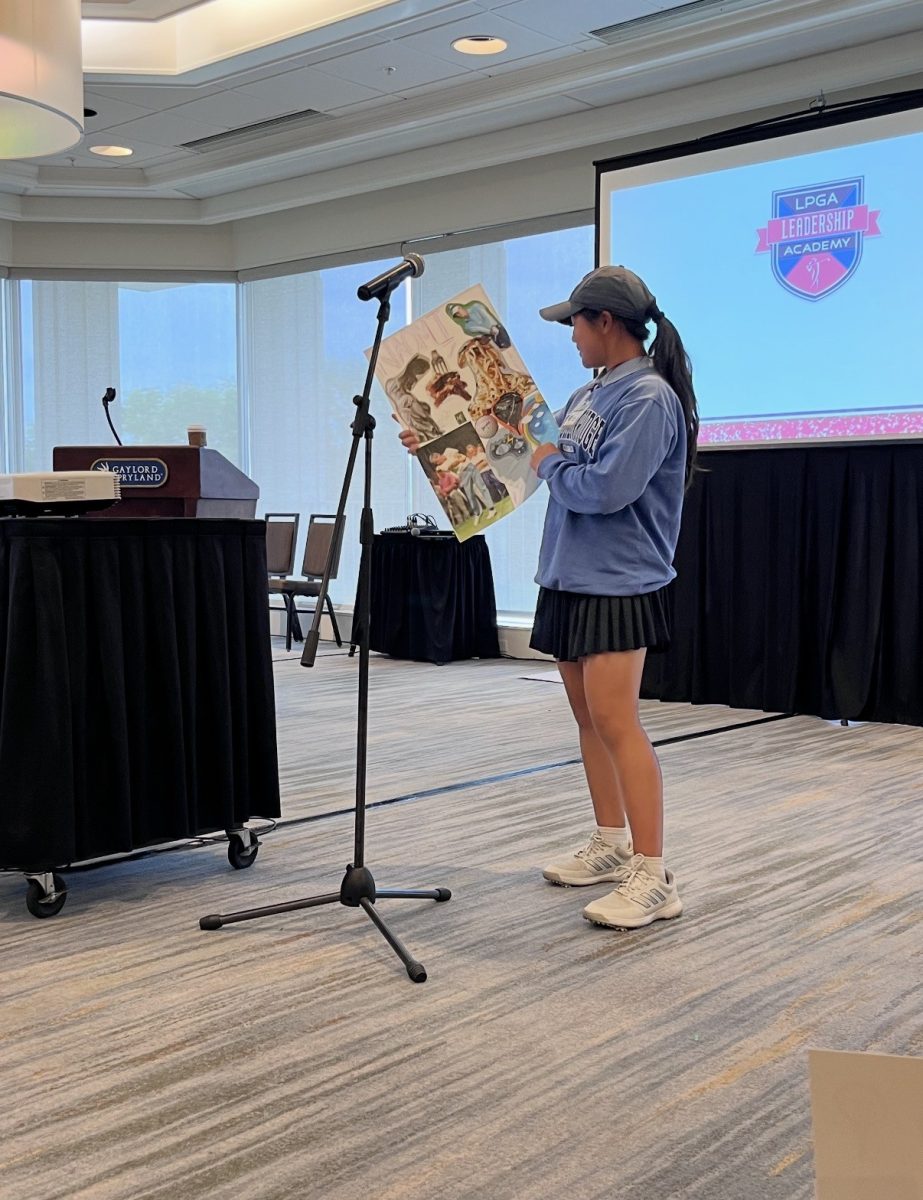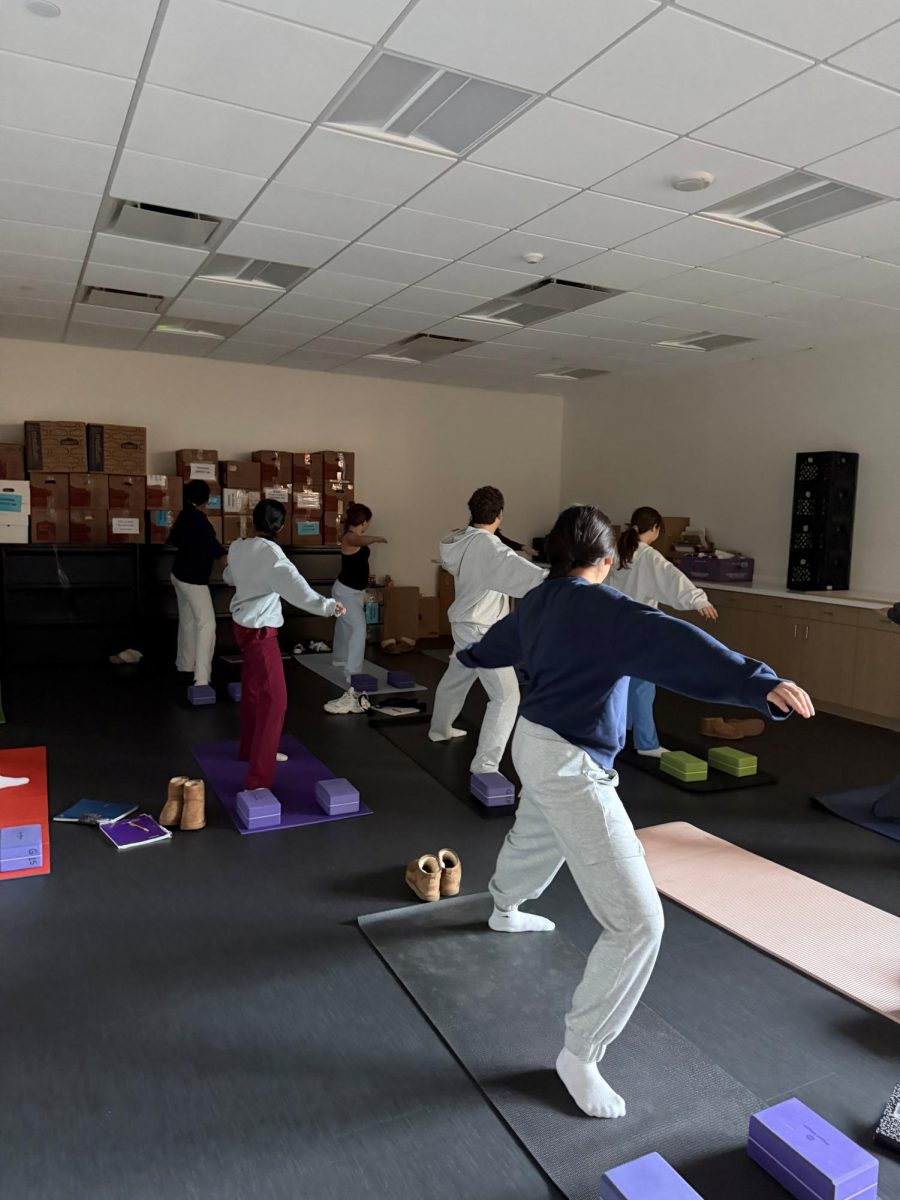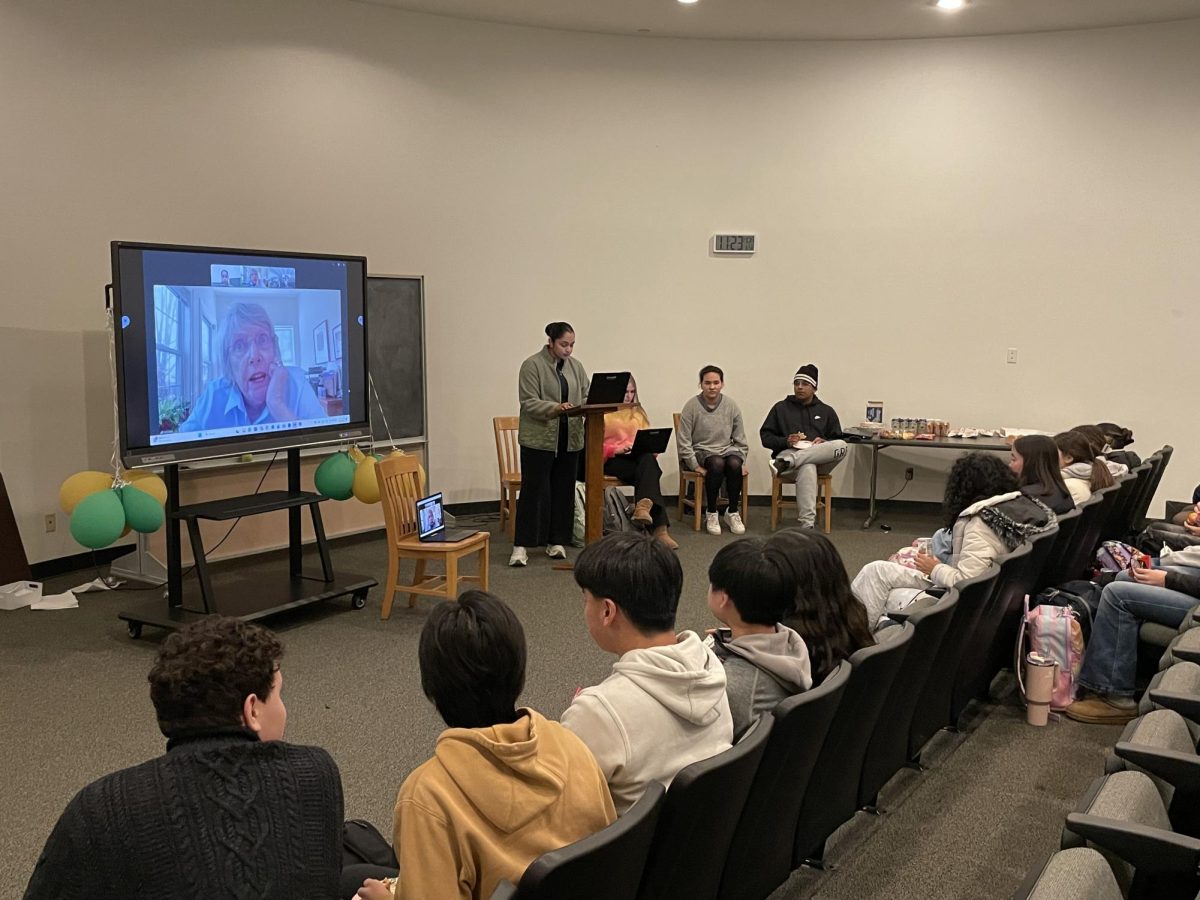Black Student Union Meets Alumni From Historically Black Colleges and Universities
May 4, 2023
On March 27, the Black Student Union (BSU) hosted a panel with Greenhill alumni with the purpose of sharing their experiences at Historically Black Colleges and Universities (HBCUs).
Thomas Joyner Jr ‘92 (Howard University), Dawn Watt ’94 (Florida A&M) and Oscar Joyner ‘93 (Florida A&M) talked about the transition from Greenhill to an HBCU and how, to them, it was a culture shock.
The alumni shared the similarities and differences between HBCU colleges and predominantly white institutions.
“I learned a lot more about HBCUs than I knew before,” said junior Iyad Mohammed. “What I feel is different from other colleges is that you’ll have more people to relate to, more people who experience what you experience, and you can get closer with your African American community and celebrate the culture and traditions.”
According to Mohammed, the panelists spoke not just about the academic side of HBCUs but about the culture and community as well. They spoke about the tight-knit community of each HBCU and how professors and students are all very close to each other.
HBCU culture widely differs from other colleges, and the president of BSU, senior Aaron Johnson, kept this in mind throughout his college application process.
“There definitely is a cultural difference. HBCUs all have traditions that are really prevalent. There is a specific type of culture you’re not going to get anywhere else except at an HBCU college,” said Johnson.
Even with an abundance of cultural and educational opportunities, HBCUs are still looked over, and students are hesitant to apply.
“I think some people might want to go to a place that’s a bit more diverse and also are unsure about how great of an education HBCUs can give you,” said Mohammed. “But there are a lot of great HBCUs out there, and they have shown themselves to be really good or very competitive with great academic stats”
The exposure to HBCUs at Greenhill is limited. HBCUs tend to be looked over when seniors start applying to colleges, and there’s not much talk about HBCUs before the application process either.
“I think it’s important that alumni of Greenhill that went to HBCUs came back to share with the students why they should consider an HBCU,” said Johnson. “I think it’s just good that underclassmen and people that are about to go through the college process get to hear about all the different opportunities that HBCUs can offer you.”
Many juniors, like Mohammed, are in the middle of their college process. The information provided by the panelists will influence many students’ future college decisions.
“If they’re any African American students even slightly considering applying to HBCUs, I would say really consider it,” said Mohammed. “I was hesitant at first, but it’s definitely something I’m interested in right now. Just keep your mind open and do your research, it might be the right thing for you.”

